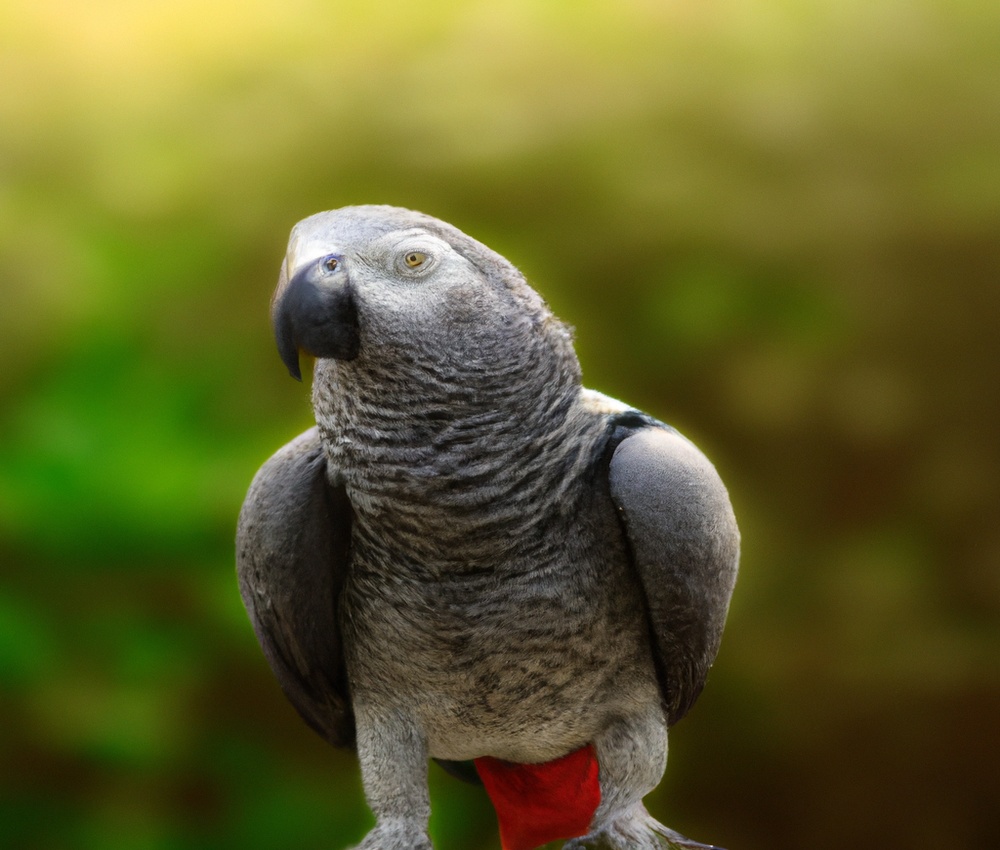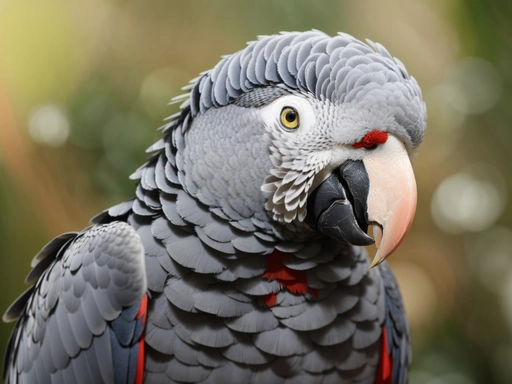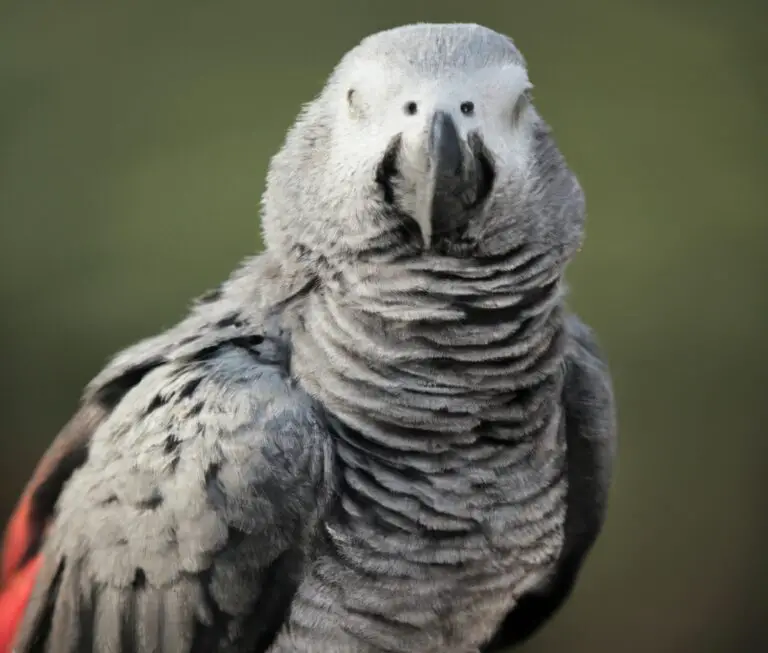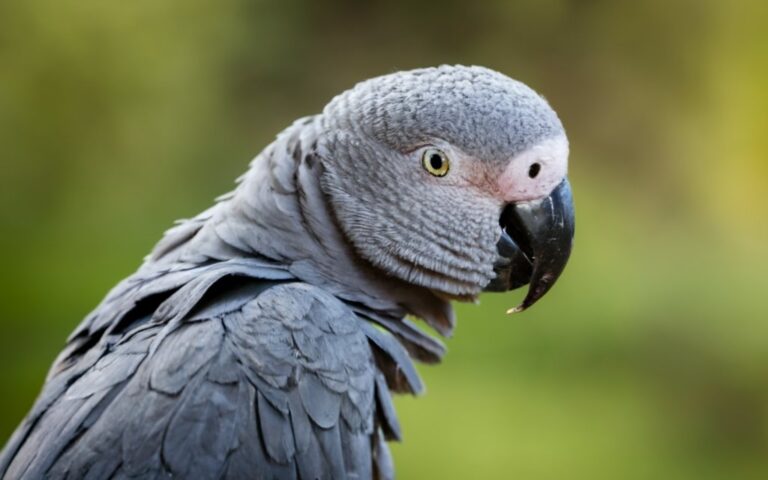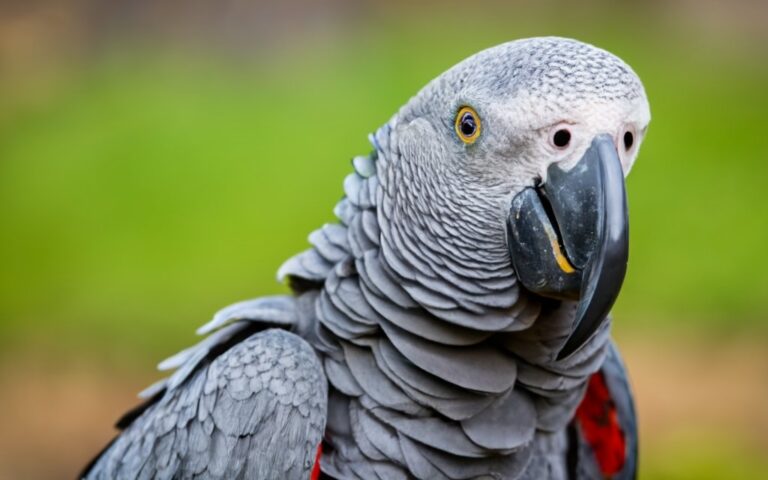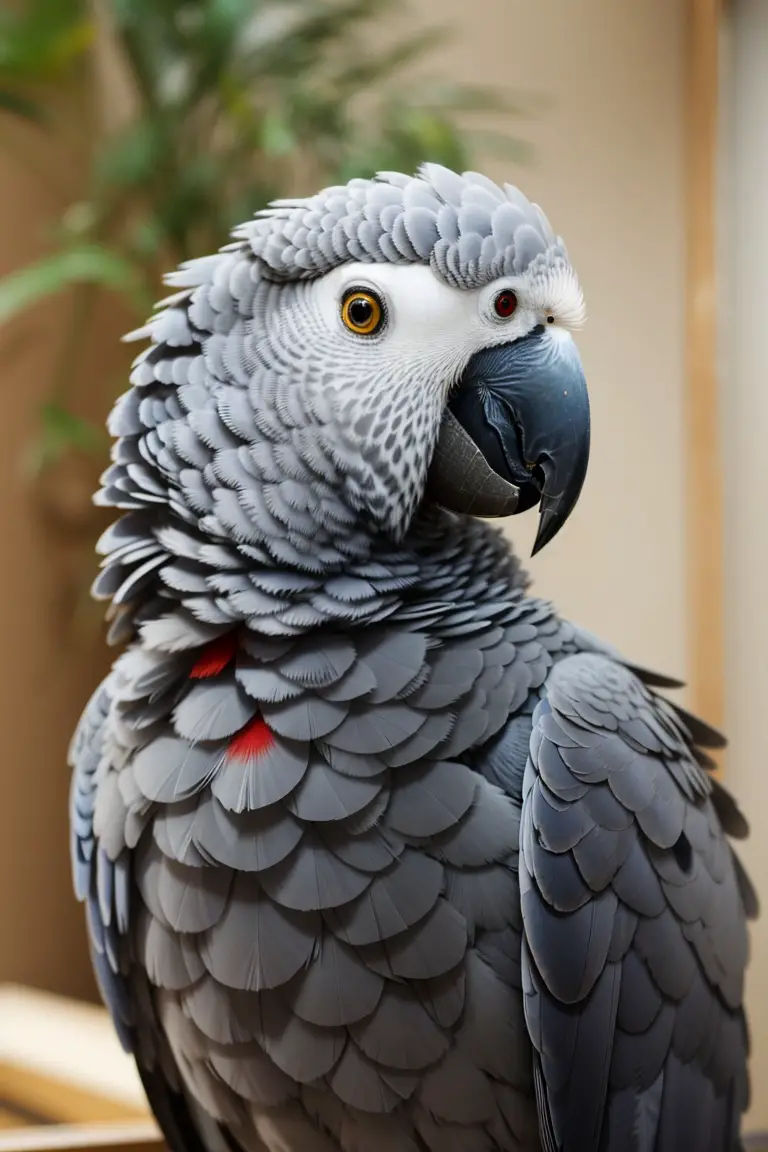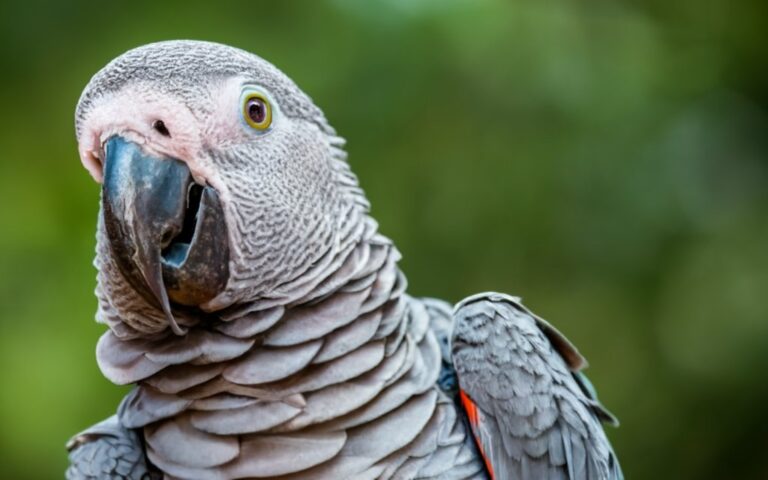Which Is Better Male Or Female African Grey Parrot?
Key Takeaways:
- There is no significant difference in intelligence or talking ability between male and female African Grey parrots.
- The choice between a male or female African Grey parrot should be based on individual preferences and compatibility with your lifestyle.
- Both male and female African Grey parrots require equal care and attention to thrive in a domestic environment.
- It is important to focus on the unique personality and needs of each African Grey parrot, regardless of its gender.
Are you considering adding an African Grey Parrot to your family, but are unsure whether to choose a male or female?
The debate between male and female African Grey Parrots has been a long-standing discussion among bird enthusiasts and owners.
As an avian expert who has spent years studying and observing these magnificent creatures, I’m here to shed some light on the topic.
In this article, we will explore the physical characteristics, behavioral differences, and other factors to consider when deciding between a male and female African Grey Parrot.
Whether you’re seeking a chatty companion or a peaceful cohabitant, this guide will help you make an informed decision.
So, let’s dive in and discover which feathered friend might be the best fit for you!
| Male African Grey Parrot | Female African Grey Parrot | |
| Physical Characteristics | Smaller in size | Larger in size |
| Coloration | Mainly gray with a red tail | Mainly gray with a maroon tail |
| Vocal Abilities | Generally better at mimicking sounds and speech | Generally better at mimicry and singing |
| Behavioral Traits | Can be more independent and reserved | Often more social and outgoing |
| Personality | Can have a more assertive and confident personality | Tend to have a calmer and more docile personality |
| Preference | May bond more strongly with male owners | May bond more strongly with female owners |
| Feather Plucking | In some cases, males may be more prone to feather plucking | In some cases, females may be more prone to feather plucking |
Understanding the Differences between Male and Female African Grey Parrots
Male and female African Grey Parrots have distinct physical characteristics and behavioral differences.
Physical Characteristics of Male African Grey Parrots
Male African Grey Parrots can be distinguished from females based on physical characteristics. They tend to have larger bodies and heads, as well as a wider wingspan.
Their beaks are more robust and their feathers are usually a darker shade of gray compared to the females.
However, it’s important to note that these characteristics can vary between individual birds.
Physical Characteristics of Female African Grey Parrots
Female African Grey Parrots have specific physical characteristics that distinguish them from males.
They usually have a smaller body size and overall weight compared to males.
The females typically have a narrower head and beak, with a more streamlined appearance.
In terms of coloration, their feathers are predominantly gray, with lighter shades on their underparts.
Another notable characteristic is the lack of distinct red tail feathers, which are present in male African Grey Parrots.
Female African Grey Parrots also tend to have a more subtle or muted vocalization style.
Behavioral Differences between Male and Female African Grey Parrots
Male African Grey Parrots are typically larger in size compared to females. Female African Grey Parrots tend to be more independent and can be more territorial.
Males are generally more social and enjoy interacting with their human caregivers.
Both genders have the ability to mimic speech and sounds, but males tend to be more inclined to engage in vocalization. It’s important to note that individual differences can vary, so it’s best to observe and understand the behavior of each bird as an individual.
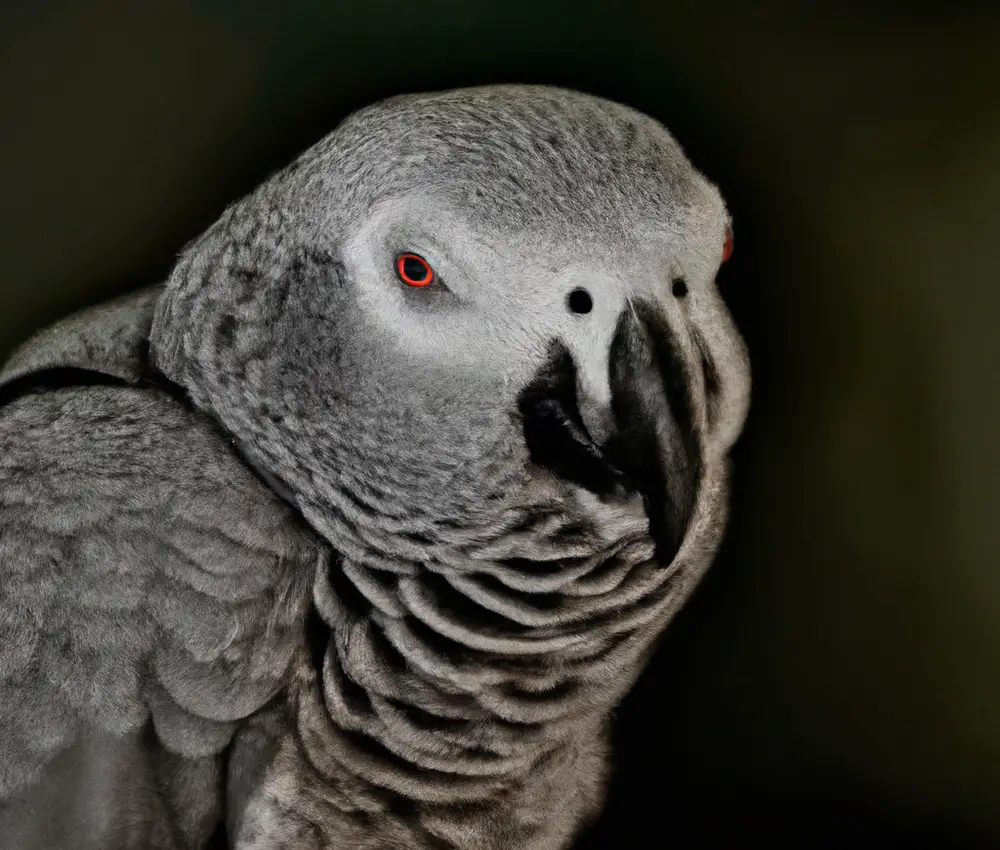
Factors to Consider in Choosing a Male or Female African Grey Parrot
When choosing a male or female African Grey Parrot, consider factors such as bonding, vocalization, behavior, and hormonal aggression.
Bonding and Companionship
Bonding and companionship are essential for a healthy relationship with your African Grey Parrot.
These intelligent birds thrive on social interaction and need companionship to prevent loneliness and boredom.
To foster a strong bond, spend quality time with your parrot, engaging in activities like talking, playing, and training.
Patience and consistency are key in building trust and strengthening the relationship.
Mutual trust and companionship create a loving and fulfilling bond with your African Grey Parrot.
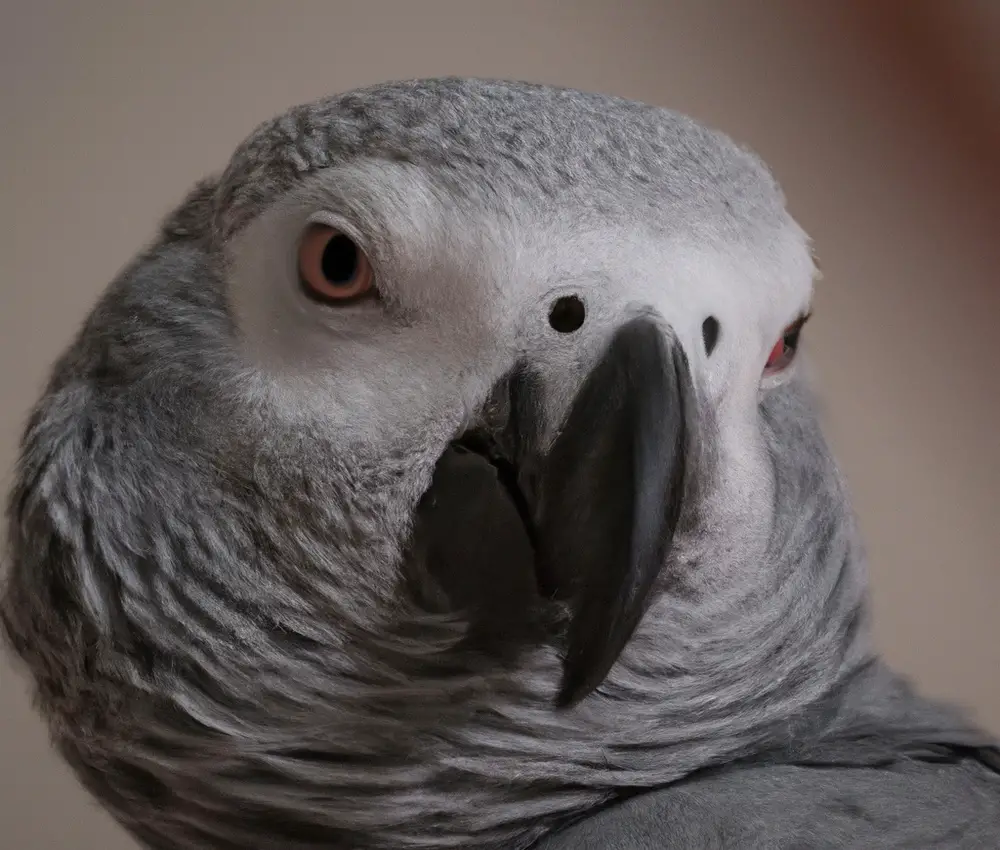
Vocalization and Talking Ability
Vocalization and Talking Ability: African Grey Parrots are known for their exceptional vocalization and talking abilities.
They have the capability to mimic human speech and other sounds with precision and clarity.
This skill is largely influenced by the environment and training they receive.
Consistent and patient training can help your African Grey develop an extensive vocabulary, allowing for meaningful interactions and entertainment.
It’s important to note that not all African Grey Parrots will have the same level of talking ability, as individual birds may have their own unique talents.
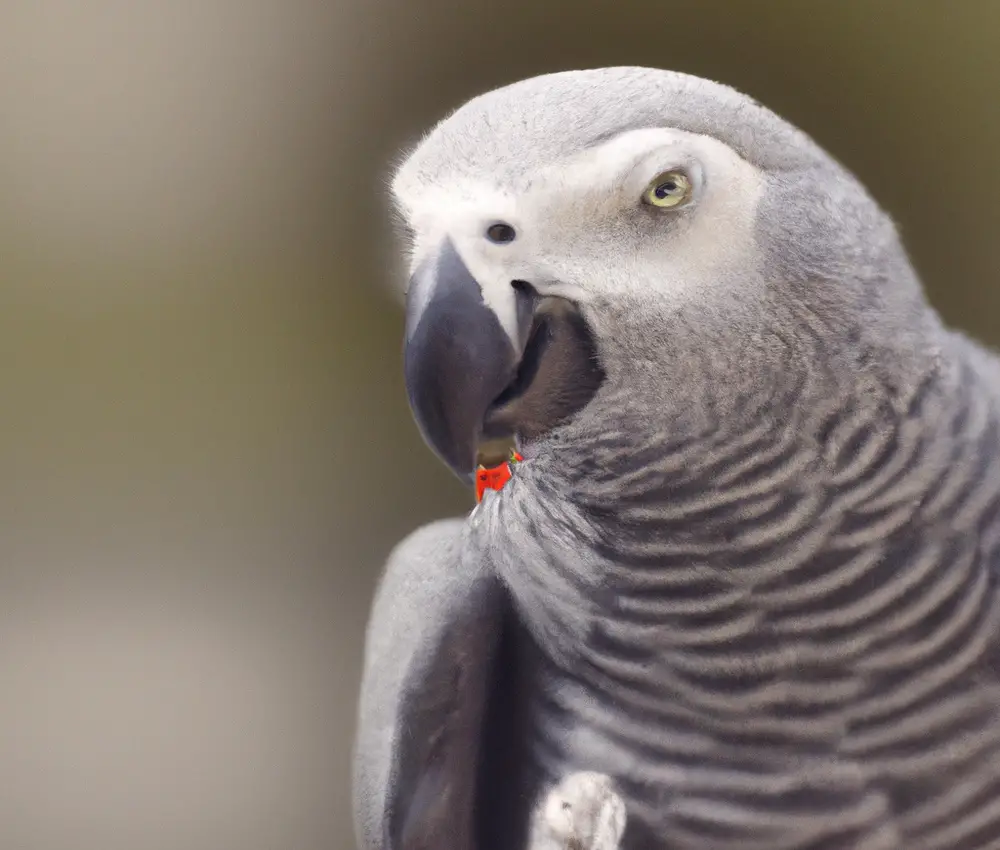
Behavioral Differences and Social Interaction
Behavioral differences between male and female African Grey Parrots can influence their social interaction.
Male African Greys are often more independent and may exhibit territorial behavior.
They can also become more vocal during breeding season.
On the other hand, female African Greys tend to be more social and affectionate.
They often enjoy interacting with their owners and other household members.
When considering which gender to choose, it’s important to take into account your own preferences and the type of social interaction you desire from your parrot.
Hormonal Behavior and Aggression
Hormonal behavior and aggression can be common in both male and female African Grey parrots. During breeding season, hormones can cause changes in their behavior.
This may include increased vocalization, territoriality, and aggression towards people or other birds.
It’s important to monitor their behavior closely and provide proper socialization and environmental enrichment to help manage these hormonal changes. Regular veterinary check-ups and a balanced diet can also play a role in minimizing aggression.
Pros and Cons of Having a Male African Grey Parrot
Pros and Cons of Having a Male African Grey Parrot: Exploring the benefits and drawbacks of owning a male African Grey Parrot.
Advantages of Having a Male African Grey Parrot
Having a male African Grey Parrot has several advantages.
Firstly, male African Greys are typically more talkative and have a larger vocabulary compared to females.
They are known for mimicking different voices and sounds accurately.
Secondly, male African Greys are usually more social and enjoy interacting with their human companions.
They can form strong bonds and seek attention and affection.
Thirdly, male African Greys tend to be more outgoing and confident, making them more adaptable to new environments and situations.
Overall, if you are looking for a talkative, social, and confident companion, a male African Grey Parrot might be the perfect choice for you.
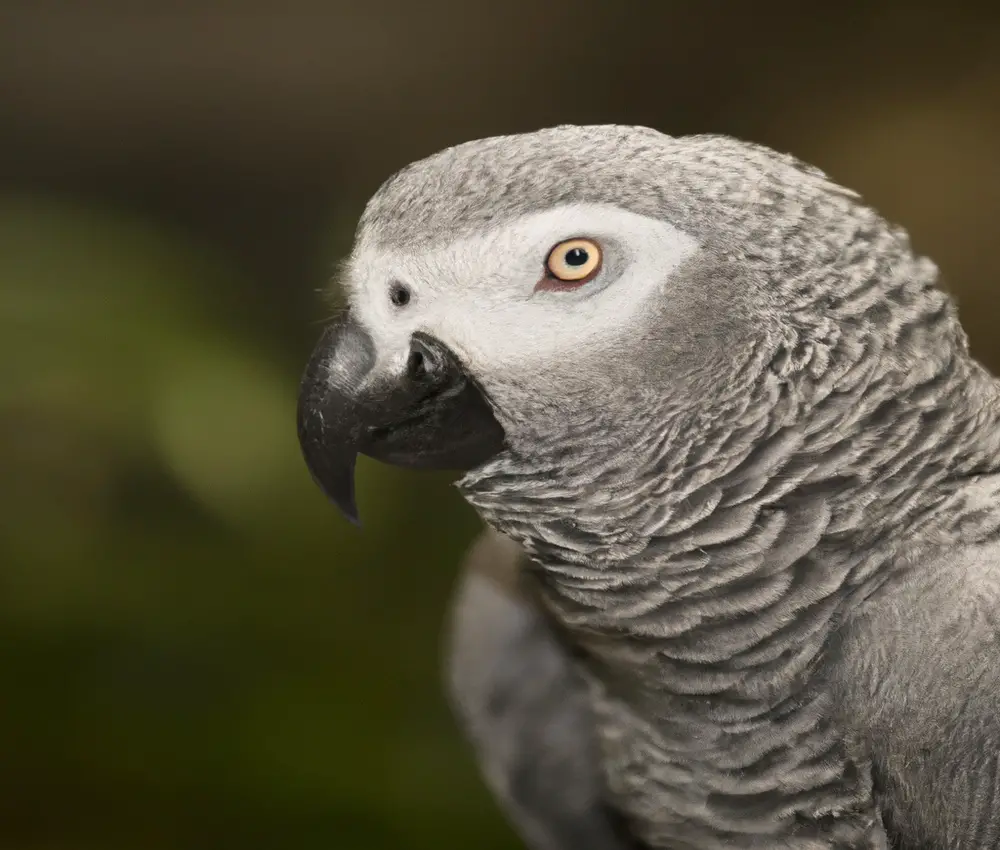
Disadvantages of Having a Male African Grey Parrot
Male African Grey parrots can be more prone to hormonal behaviors such as excessive vocalization, aggression, and territoriality. They may also have a higher tendency to bond strongly with one person, making socialization with others a bit challenging.
Furthermore, male African Greys have the potential to become more possessive of their toys and space.
It’s essential to provide them with proper training and mental stimulation to manage these behaviors effectively.
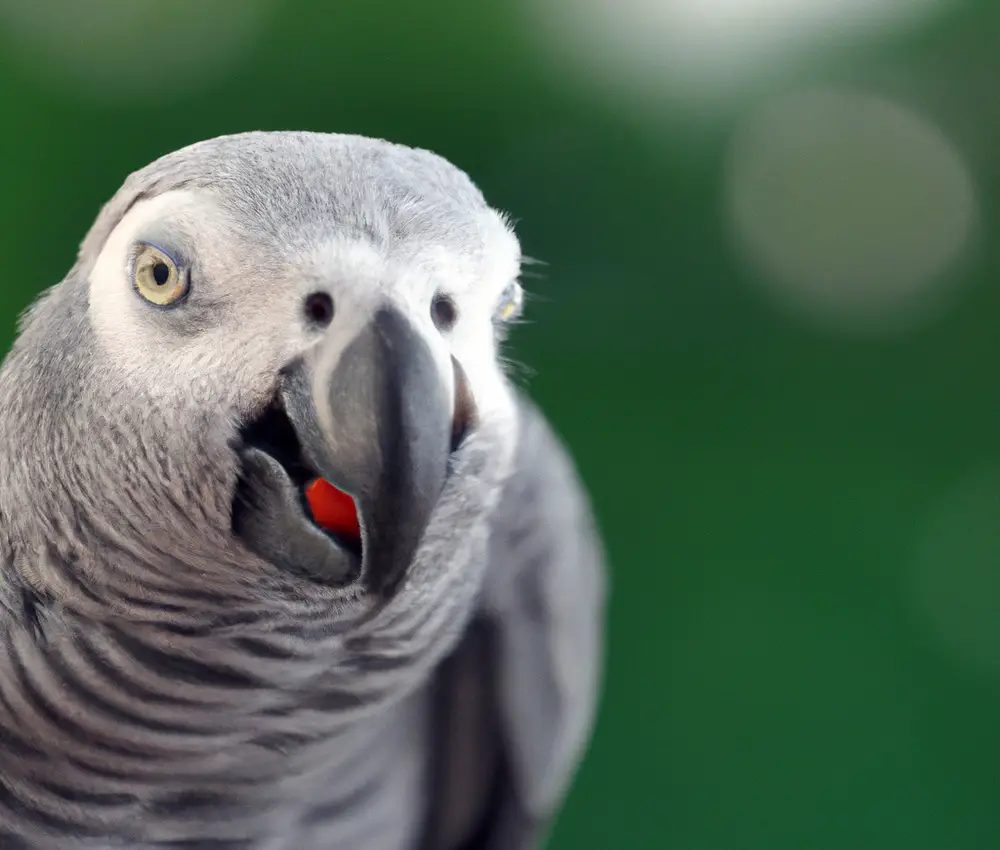
Pros and Cons of Having a Female African Grey Parrot
Having a female African Grey parrot has its pros and cons.
Advantages of Having a Female African Grey Parrot
Having a female African Grey Parrot has several advantages.
- They are typically more emotional: Female African Grey Parrots are known for being more affectionate and responsive. They may be more inclined to seek out physical contact and enjoy being petted.
- They have a mellower temperament: Female African Greys tend to be less aggressive and more adaptable. They are generally easier to handle and train, making them a good choice for first-time bird owners.
- They can be better talkers: While both male and female African Greys possess excellent talking abilities, some experts believe that female African Greys may have a slight advantage in terms of vocalization and mimicry.
- They are less prone to hormonal behavior: Female African Greys are less likely to exhibit hormonal behaviors such as excessive screaming or territorial aggression. This can make them more pleasant companions and easier to manage in a household setting.
- Potential for bonding: Female African Greys have proven to be excellent companions and can form strong bonds with their owners. They often display a high level of loyalty and can provide great companionship.
Keep in mind that individual bird personalities may vary, so it’s essential to spend time getting to know your specific African Grey Parrot and understand their unique needs and preferences.
Disadvantages of Having a Female African Grey Parrot
Female African Grey Parrots have a few disadvantages compared to their male counterparts. They tend to be more territorial, which can lead to aggressive behavior towards other pets.
They may also become more bonded to one person, making it harder for them to socialize with other family members.
Additionally, female African Greys are more prone to laying eggs, which can have health complications. So, if you’re considering getting a female African Grey Parrot, these are some factors you should keep in mind.
Frequently Asked Questions about Male and Female African Grey Parrots
Can male and female African Grey Parrots be housed together?
Male and female African Grey Parrots can be housed together with proper introduction and monitoring.
Introducing them gradually allows them to get accustomed to each other’s presence.
Providing separate cages initially, while allowing supervised interactions, helps assess compatibility.
Giving each bird their own space within the same room is crucial.
Building trust and providing adequate mental and physical stimulation is essential for a harmonious cohabitation.
Monitoring their behavior and resolving any conflicts swiftly is important for their overall well-being.
Are male or female African Grey Parrots more aggressive?
Are male or female African Grey Parrots more aggressive?
In general, there is no definitive answer.
Aggression in parrots can vary based on individual personality rather than gender.
Some male African Grey Parrots may exhibit aggressive behavior, while others may be quite docile.
The same goes for females.
It’s important to focus on providing proper socialization, training, and a stimulating environment for your parrot, regardless of their gender, to minimize the chance of aggression.
Do male or female African Grey Parrots have better talking ability?
Male and female African Grey Parrots have similar talking abilities.
Both genders are known for their exceptional speaking skills and are highly regarded as one of the best talking parrot species.
The talking ability of an African Grey Parrot depends more on the individual bird’s personality, environment, training, and the amount of social interaction they receive.
Both males and females can develop an extensive vocabulary and mimic various sounds with proper training and socialization.
So, whether you choose a male or female African Grey Parrot, both have the potential to be excellent talkers.
Can male and female African Grey Parrots breed in captivity?
Male and female African Grey Parrots can indeed breed in captivity.
As highly social and intelligent birds, they have the ability to form pair bonds and successfully reproduce in a controlled environment.
If you are interested in breeding African Grey Parrots, it is essential to provide them with proper care, a comfortable nesting environment, and a well-balanced diet.
It is also important to note that breeding should only be undertaken by experienced individuals who have a comprehensive understanding of the species’ needs and behavior.
Are male or female African Grey Parrots easier to train?
Male and female African Grey Parrots both have the potential to be trained, but there are some general differences in their behavior. Males are often more independent, curious, and playful, making training a bit easier.
Females, on the other hand, tend to be more cautious and reserved, which might require more patience during the training process.
However, every parrot is unique, so individual personality should also be taken into account. Positive reinforcement, consistency, and building trust are key to successfully training any African Grey Parrot.
Final Verdict
When it comes to choosing between a male or female African Grey Parrot, it ultimately depends on your preferences and needs as a pet owner. Male African Grey parrots tend to be more affectionate and better at mimicry, while female African Grey parrots may be more independent and less prone to hormonal behavior.
Both genders have their own unique qualities and traits, so it’s important to consider factors such as bonding, companionship, vocalization, and social interaction before making a decision.
It’s important to remember that the individual personality of the bird should also be taken into account. Ultimately, the most important aspect is providing a loving and nurturing environment for whichever gender you choose.

